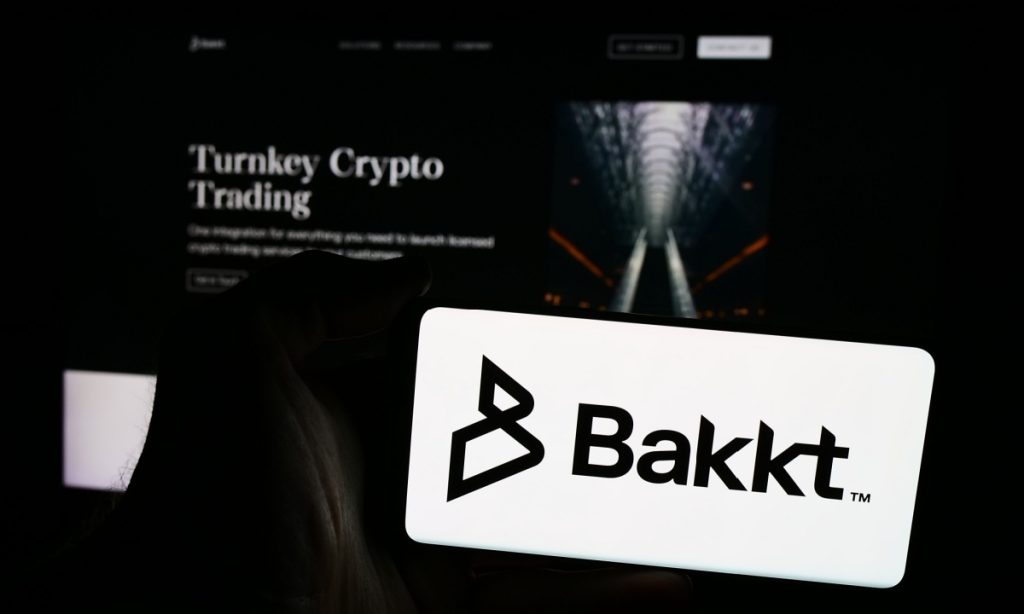Bakkt Holdings is undergoing significant changes and starting anew.
On Monday (March 17), the digital asset and payments platform faced a substantial setback when Bank of America and Webull declared they would not renew their commercial contracts with Bakkt.
After two delays, on Wednesday (March 19), Bakkt finally held its earnings call to discuss its operational and financial performance for the fourth quarter and full year of 2024.
The major announcement was Bakkt’s agreement to divest its Trust custody business, the appointment of a new co-CEO, and a strategic shift towards becoming a dedicated crypto infrastructure firm.
According to a Form 8-K filed with the Securities and Exchange Commission (SEC), Webull constituted approximately 74% of Bakkt’s crypto services revenue.
“Moving forward as a focused crypto ecosystem player, this divestiture allows us to enhance our core offerings — focusing on institutional-grade crypto trading and liquidity, as well as payment solutions, pending regulatory approvals,” stated Andy Main, Bakkt’s CEO.
Main also introduced Akshay Naheta as co-CEO and emphasized the importance of their partnership with DTR [Distributed Technologies Research] to enhance capabilities in the global stablecoin payments solution.
Bakkt’s stock remained stable around $9, despite an initial drop of 30% earlier in the week. There was no question-and-answer session following the earnings call.
Commitment to Core Functions
Bakkt has undergone one of the most significant transformations, shifting from an approach that integrated traditional finance with digital assets to focusing exclusively on becoming a comprehensive crypto infrastructure provider.
The company has partnered strategically with DTR to bolster its capabilities within the global stablecoin payments landscape.
To enable this focus, Bakkt has divested its Trust custody business to Intercontinental Exchange (ICE), allowing it to target institutional-grade crypto trading, liquidity, and payment solutions contingent on securing regulatory approvals.
At the same time, Bakkt is exploring options for its Loyalty business, indicating a shift away from travel miles or gift card conversions, and toward digital asset trading, infrastructure, and institutional-grade solutions.
The Q4 2024 earnings report demonstrates Bakkt’s aggressive restructuring strategies, which included leadership changes and divestments, realigning towards high-frequency crypto trading.
Bakkt posted total revenues of $1.797 billion for the quarter, marking a 737.9% increase year-over-year due to heightened activity in the crypto market and asset price surges.
Explore more: The Stablecoin Market Is $220 Billion. Are Businesses Actually Using Them?
Despite the growth, Bakkt posted a net loss of $40.4 million for the quarter, though this was a 48.7% improvement year-over-year. Additionally, adjusted EBITDA losses decreased by 66.3% to $6.4 million, showing progress in operational efficiency and cost reduction.
However, Bakkt is encountering significant challenges. The discontinuation of its contract with Webull, a crucial revenue stream, raises concerns over the company’s ability to sustain retail partnerships while transitioning to an institutional focus.
Furthermore, Bakkt’s reliance on the volatile crypto markets means external shocks, such as regulatory actions, liquidity issues, or security breaches, could greatly affect its performance.
With projected revenues for Q1 2025 between $1.03 billion and $1.28 billion, Bakkt is counting on continued crypto adoption and deeper institutional integration for success. Whether this strategy will succeed is uncertain, but Bakkt is clearly aiming to shift from being a consumer-oriented crypto startup to a key player in the digital asset market infrastructure.



